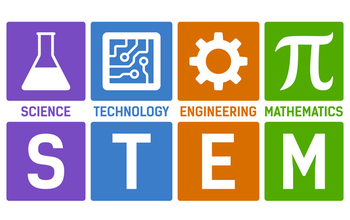Taking a STEM-related career and technical education course in high school makes low-income students additional engaged in class than people who don’t take such a course. The All-India Council for Robotics and Automation https://www.aicra.org/ shifts to STEM way of Education as it is the al, time need in the Education world.
We found that career and technical education courses associated with science, technology, engineering, and arithmetic were coupled with higher engagement within the eleventh grade for low-income students. This finding commands once taking key student and college characteristics under consideration, like student attitudes and educational histories. AICRA https://www.aicra.org/ provides a professional certification program along with training and internship opportunities in the industry https://www.aicra.org/professional-certification. It https://www.aicra.org/index also conducts webinars, seminars, and technology-related https://www.aicra.org/events/delhi/index.php events and summits https://www.aicra.org/stem-summit-awards/ to encourage learners and professionals.
Why it matters
Although STEM https://www.aicra.org/events/delhi/index.php professions need each social and technical data, technical skills are usually valued quite https://www.aicra.org/aicrapost/all-you-need-to-know-about-robotics-skill-centers/ social skills.
Math and science instruction typically encourage competition and rigor, which constrains students’ ability to price variations in expertise, style, and problem-solving approaches. This conjointly limits students’ ability to ascertain however maths and science data will solve social issues. what is more, ancient maths and science teaching has censured students for the way they speak and live. This happens once academics focus a lot on exploiting scientific language than on displaying scientific understanding. Therefore https://www.aicra.ac.in/what-we-do several students become disengaged and lose interest.
Prior to the pandemic, students from low-income backgrounds especially had lower engagement than students from middle- or high-income https://www.aicra.ac.in/what-we-do backgrounds. throughout the pandemic, students from low-income backgrounds were already addressing problems like food insecurity, condition, and access to technology did not have a physical location to attend faculty. THE AICRA https://www.aicra.ac.in/what-we-do has come up with a certification program called Robotics Literacy program https://www.aicra.ac.in/robotics-literacy-program at a not very high cost which will provide appreciation and certification to the Robotic skills of young learners, and encourages them to challenge their limits and further extend their abilities.
What still isn’t known
Unfortunately, it isn’t doable to understand specifically what goes on in STEM-related career and technical education courses on an outsized scale whereas individual lecturers recognize what they teach and what their students learn, it’s troublesome to spot what students square measure learning or however lecturers square measure teaching totally different categories in several faculties. Seeing this, AICRA https://www.aicra.org/ is keen on implementing a robotics skill center https://www.aicra.org/aicrapost/all-you-need-to-know-about-robotics-skill-centers/ to make these students grow with real applications and technologies used in industry 4. o https://www.aicra.org/aicrapost/centre-of-excellence-in-healthcare-sector/ and prepare these students for future technology growth.
What’s next
AICRA https://www.aicra.org/index# thoroughly believes that exploring the semipermanent advantages of STEM-related career and technical education courses could be a crucial next step as an example, it’ll be vital to explore whether or not these courses truly result in jobs, that we tend to are gazing in some current https://www.aicra.ac.in/what-we-do comes.
Ultimately, career and technical https://www.aicra.ac.in/what-we-do education could give a motivating chance to seem at student success as quite simply a check score. Rather, it’ll alter educators to live successfully in terms of being prepared for a career.

